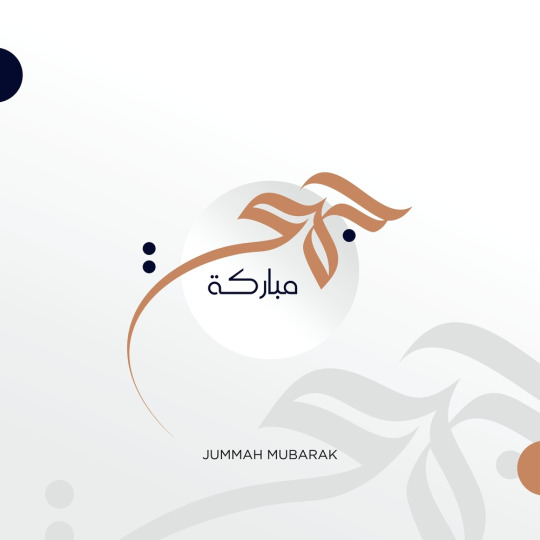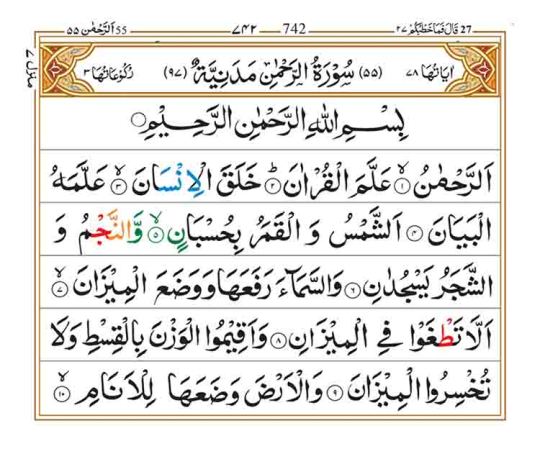Text
Embracing the Sanctity of Friday in Islam: Insights from Surah Al-Jumu'ah

In the rhythm of Islamic life, Fridays stand out as a beacon of spiritual significance. As the holy day of congregational prayer and reflection, Friday holds a revered place in the hearts of Muslims worldwide. Surah Al-Jumu'ah within the Noble Quran encapsulates the essence of this sacred day, emphasizing its importance and guiding believers on its observance. Through its verses, Surah Al-Jumu'ah unveils the multifaceted significance of Friday, inviting believers to embrace its sanctity with reverence and devotion.
At the heart of Islam lies the principle of worshiping Allah, the Most Merciful and Compassionate. Fridays, in particular, are designated as a time for Muslims to gather in congregation, reaffirming their faith and strengthening their bonds of brotherhood. Surah Al-Jumu'ah opens with a profound proclamation, stating, "O you who have believed, when [the adhan] is called for the prayer on the day of Jumu'ah, then proceed to the remembrance of Allah and leave trade. That is better for you if you only knew." (Quran 62:9)
Here, the Quran underscores the centrality of the Friday congregational prayer, urging believers to hasten to the remembrance of Allah and to abstain from worldly pursuits. This directive highlights the elevated status of Friday as a day uniquely dedicated to spiritual rejuvenation and communal worship. By prioritizing the congregational prayer over worldly engagements, Muslims symbolically demonstrate their submission to the divine will and their commitment to fostering a deeper connection with the Creator.
Moreover, Surah Al-Jumu'ah serves as a poignant reminder of Allah's boundless mercy and guidance bestowed upon humanity through His messengers. The surah continues, "He is the One who sent among the unlettered [people] a Messenger from themselves reciting to them His verses and purifying them and teaching them the Book and wisdom - although they were before in clear error." (Quran 62:2) This verse highlights the pivotal role of Prophet Muhammad (peace be upon him) as the final messenger sent to guide humanity towards righteousness and truth.
As Muslims gather on Fridays to pray and reflect, they commemorate the Prophetic legacy and express gratitude for the divine guidance bestowed upon them. Through the recitation of Surah Al-Jumu'ah and engagement in acts of worship, believers retrace the footsteps of the Prophet Muhammad (peace be upon him), drawing inspiration from his exemplary life and teachings.
Furthermore, Fridays serve as an occasion for believers to engage in introspection and spiritual refinement, preparing themselves for the inevitable Day of Judgment. Surah Al-Jumu'ah admonishes, "And when the prayer has been concluded, disperse within the land and seek from the bounty of Allah, and remember Allah often that you may succeed." (Quran 62:10) This verse encapsulates the essence of Friday, encouraging believers to seize the opportunity for spiritual growth and self-improvement.
By dispersing after the congregational prayer and engaging in righteous deeds, Muslims embody the teachings of Surah Al-Jumu'ah, striving to lead lives of piety and virtue. Through acts of charity, kindness, and remembrance of Allah, believers fortify their souls and cultivate a sense of spiritual fulfillment, paving the way for success in this world and the Hereafter.
In essence, Surah Al-Jumu'ah serves as a guiding light for believers, illuminating the significance of Friday in Islam and inspiring a profound reverence for this blessed day. Through its verses, the Quran beckons Muslims to embrace the sanctity of Friday, to partake in the congregational prayer with humility and devotion, and to seek closeness to Allah through acts of worship and righteous deeds. As believers heed the teachings of Surah Al-Jumu'ah, they enrich their spiritual lives and deepen their connection to the divine, finding solace and guidance in the embrace of Islam's holiest day.
0 notes
Text
Surah Al-Mulk: Impact on Daily Life

Surah Al-Mulk, the 67th chapter of the Quran, holds profound significance in the lives of Muslims worldwide. Its verses encapsulate timeless wisdom and guidance that transcend temporal boundaries, offering believers a roadmap for navigating the complexities of daily life. Through its teachings, Surah Al-Mulk not only enriches spiritual understanding but also profoundly influences individual conduct and interactions within society.
Reflection and Accountability
At its core, Surah Al-Mulk underscores the concept of accountability before the divine. It reminds believers of their responsibility to reflect upon their actions and intentions. This introspective practice cultivates a heightened sense of mindfulness, encouraging individuals to align their behavior with moral and ethical principles. By fostering accountability, Surah Al-Mulk serves as a constant reminder that every deed, whether overt or concealed, carries weight in the sight of God.
Gratitude and Humility
Surah Al-Mulk extols the majesty of God's creation, inviting believers to contemplate the natural world with awe and gratitude. Through vivid descriptions of cosmic phenomena, it instills a sense of humility in the hearts of those who ponder its verses. This humility stems from the recognition of humanity's insignificance in the vastness of the universe, juxtaposed with God's infinite power and mercy. By acknowledging one's dependence on the Creator, individuals are humbled and motivated to express gratitude for blessings, both tangible and intangible.
Faith and Assurance
In moments of adversity and uncertainty, Surah Al-Mulk serves as a source of solace and reassurance for believers. Its verses affirm the sovereignty of God over all affairs, instilling unwavering faith in His divine wisdom and mercy. By internalizing the message of trust and reliance on God, individuals find strength amidst trials and tribulations. Surah Al-Mulk reminds believers that challenges are transient, and steadfast faith is the cornerstone of resilience in the face of adversity.
Ethical Conduct
Surah Al-Mulk lays down foundational principles of ethical conduct that guide interactions within society. It emphasizes justice, compassion, and empathy as fundamental values to uphold in all dealings with others. By promoting integrity and fairness, Surah Al-Mulk fosters harmonious relationships and social cohesion. Believers are encouraged to emulate the exemplary character of the Prophet Muhammad (peace be upon him) and embody the teachings of compassion and kindness towards fellow beings.
Stewardship of the Earth
The Quranic teachings on environmental stewardship are echoed in Surah Al-Mulk, underscoring humanity's role as caretakers of the Earth. Believers are reminded of their responsibility to safeguard the environment and preserve God's creation for future generations. This entails adopting sustainable practices, reducing waste, and advocating for environmental conservation. By aligning with the Quranic principles of environmental ethics, individuals can contribute to the preservation of the planet and fulfill their duty as trustees of God's bountiful resources.
Conclusion
Surah Al-Mulk transcends the boundaries of time and space, offering timeless wisdom and guidance that resonate deeply with believers in their daily lives. Its teachings inspire reflection, gratitude, and humility, shaping individual conduct and interactions within society. By internalizing the message of accountability, faith, and ethical conduct, individuals can strive towards spiritual growth and moral excellence. As believers embark on their journey through life, Surah Al-Mulk serves as a steadfast companion, illuminating the path towards righteousness and inner peace.
1 note
·
View note
Text
Surah Al-Waqiah: A Timeless Guide to Contemporary Relevance
In a world marked by rapid changes, shifting values, and evolving challenges, finding guidance that transcends time and speaks to the heart of contemporary issues is invaluable. Surah Al-Waqiah, a chapter in the Quran, offers timeless wisdom that remains profoundly relevant in navigating the complexities of modern life. Through its vivid imagery, profound teachings, and timeless messages, Surah Al-Waqiah provides insights that resonate with the challenges and aspirations of people today.
At its core, Surah Al-Waqiah underscores the inevitability of accountability and the importance of faith and righteous deeds. In a society often driven by material pursuits and instant gratification, this surah reminds us of the transient nature of worldly possessions and the ultimate reality of the Hereafter. It prompts introspection into the true purpose of life and encourages a shift in focus from the temporal to the eternal.
One of the most striking aspects of Surah Al-Waqiah is its portrayal of the contrast between the righteous and the wicked. In a world grappling with injustice, inequality, and moral decay, this surah serves as a moral compass, urging individuals to uphold principles of justice, compassion, and integrity. It calls for a commitment to righteousness in both personal conduct and societal structures, emphasizing the importance of accountability and ethical behavior.
Furthermore, Surah Al-Waqiah highlights the significance of charity and good deeds. In an era marked by global crises, humanitarian emergencies, and socioeconomic disparities, the call to generosity and compassion resonates deeply. This surah reminds us of our responsibility to alleviate the suffering of others, to share our blessings with those in need, and to strive for social justice and equity.
Moreover, Surah Al-Waqiah offers profound insights into the power dynamics of wealth and resources. In a world characterized by wealth accumulation, consumerism, and economic disparities, this surah challenges us to reevaluate our relationship with material possessions. It emphasizes that true wealth lies not in accumulation but in gratitude, generosity, and spiritual contentment. It calls for responsible stewardship of resources and equitable distribution of wealth for the betterment of society as a whole.
Surah Al-Waqiah also invites reflection on the signs of God's existence and power manifest in the natural world. In an age marked by environmental degradation, climate change, and ecological crises, this surah underscores the interconnectedness of humanity and the natural world. It calls for reverence for the Earth, conservation of natural resources, and sustainable living practices rooted in respect for creation.
Moreover, Surah Al-Waqiah emphasizes the importance of recitation and reflection as means of spiritual nourishment and guidance. In a fast-paced world inundated with distractions and noise, this surah encourages moments of contemplation, prayer, and connection with the Divine. It reminds us that true fulfillment and inner peace are found in cultivating a deep spiritual relationship and seeking guidance from the Quran.
In conclusion, Surah Al-Waqiah serves as a timeless guide to contemporary relevance, offering profound insights and practical guidance for navigating the challenges and complexities of modern life. Its teachings on faith, righteousness, justice, compassion, and stewardship resonate deeply with the aspirations and struggles of people today. By engaging with the wisdom of this surah, individuals and communities can find inspiration, guidance, and solace in their journey towards a more meaningful and purposeful existence.
0 notes
Text
Surah Yasin: A Call for Environmental Stewardship

Surah Yasin, the heart of the Quran, resonates not only with spiritual guidance but also with profound wisdom relevant to contemporary issues. Among these is the imperative of environmental stewardship—an ethical responsibility emphasized within its verses. In an era marked by ecological crises and climate change, Surah Yasin offers timeless principles and perspectives that advocate for harmony with nature, sustainable living, and the protection of the Earth's ecosystems.
At its core, Surah Yasin emphasizes the interconnectedness and balance inherent in creation. It extols the majesty of God's creation, urging reflection upon the signs of nature as manifestations of divine wisdom. In verse 36, it states, "Glory to Him Who created all the pairs of that which the earth produces, as well as of their own (human) kind and (other) things of which they have no knowledge." This verse invites contemplation of the intricate web of life and the interdependence of all living beings.
Furthermore, Surah Yasin highlights the Earth as a trust bestowed upon humanity, with humans appointed as stewards responsible for its care and preservation. In verse 62, it declares, "Is He (not best) Who made the earth a fixed abode, and placed rivers in its folds, and placed firm mountains upon it, and placed a barrier between the two seas?" This verse underscores the sanctity of the Earth and the divine mandate to protect its natural resources for future generations.
Central to the message of Surah Yasin is the concept of accountability—both to God and to future generations—for our actions towards the environment. It warns against heedless exploitation and destruction of the Earth's resources, emphasizing the consequences of ecological imbalance. In verse 80, it states, "He Who produces for you fire out of the green tree, when behold, ye kindle (your fire) from it." This verse serves as a reminder of the interconnectedness of human activity and its impact on the environment.
Drawing upon these themes, Surah Yasin offers profound insights into the principles that should govern environmental ethics and sustainable living. Firstly, it calls for a recognition of the intrinsic value of nature and the inherent rights of all living beings to exist and thrive. In a world driven by relentless consumption and exploitation, Surah Yasin challenges us to reevaluate our relationship with the natural world and adopt a more reverent and respectful attitude towards it.
Secondly, Surah Yasin emphasizes the importance of moderation and balance in our interactions with the environment. It warns against excessive consumption and wastefulness, advocating for sustainable practices that ensure the long-term health and viability of the Earth's ecosystems. Whether it is through reducing our carbon footprint, conserving water and energy, or protecting biodiversity, Surah Yasin calls upon believers to be mindful of the ecological consequences of their actions.
Finally, Surah Yasin highlights the ethical imperative of environmental justice and solidarity with the most vulnerable communities affected by environmental degradation. It reminds us that the impacts of ecological crises are disproportionately borne by marginalized populations, who often have the least capacity to adapt and recover. By advocating for environmental justice and standing in solidarity with those most affected, Surah Yasin calls upon believers to address the root causes of environmental injustice and work towards a more equitable and sustainable future for all.
In conclusion, Surah Yasin serves as a timeless guide for environmental stewardship and ethical living. Its profound insights into the interconnectedness of all creation, the sanctity of the Earth, and the imperative of accountability offer invaluable guidance for navigating the ecological challenges of the modern world. As we strive to build a more sustainable and just society, let us draw inspiration from the timeless wisdom of Surah Yasin and commit ourselves to protecting and preserving the Earth for future generations.
0 notes
Text
Surah Al-Mulk: Lessons on Guidance and Mercy

Surah Al-Mulk, the 67th chapter of the Quran, holds profound insights into the concepts of guidance and mercy as embodied by Allah. Through its verses, believers are reminded of Allah's boundless mercy and His guidance extended to all of creation. In this article, we will explore the teachings of Surah Al-Mulk regarding guidance and mercy, and their relevance to our lives.
At the heart of Surah Al-Mulk lies the recognition of Allah as the ultimate source of guidance and mercy. The chapter opens with the declaration of Allah's sovereignty over the heavens and the earth, emphasizing His power and authority as the Creator. It is through His mercy that the universe operates in perfect order, and it is His guidance that illuminates the path for mankind.
Surah Al-Mulk underscores the importance of reflection and contemplation on the signs of Allah as a means to attain guidance. The chapter invites believers to ponder over the creation of the heavens and the earth, the alternation of night and day, and the celestial bodies that navigate the cosmos. Each of these serves as a testament to Allah's wisdom and benevolence, guiding humanity towards the recognition of His existence and the submission to His will.
Moreover, Surah Al-Mulk emphasizes the role of the Quran as a source of guidance and mercy for humanity. It highlights the significance of seeking refuge in Allah from the punishment of Hellfire through the recitation of the Quran, particularly Surah Al-Mulk. This act not only serves as a means of protection but also reflects a profound acknowledgment of Allah's mercy towards His creation.
The chapter further illustrates Allah's mercy by highlighting His forgiveness and compassion towards His servants. Despite the shortcomings of humanity, Allah continues to extend His guidance and mercy, inviting believers to repent and seek His forgiveness. Surah Al-Mulk reassures believers of Allah's willingness to forgive sins and grant salvation to those who turn to Him in sincere repentance.
Additionally, Surah Al-Mulk emphasizes the accountability of individuals for their actions, while also emphasizing Allah's mercy in judgment. The chapter vividly describes the Day of Judgment, where every soul will be recompensed according to its deeds. However, Allah's mercy transcends His justice, as He grants respite to sinners, giving them opportunities to repent and seek His forgiveness until the last moment.
Surah Al-Mulk also serves as a source of consolation and hope for believers, reminding them of Allah's promise of guidance and mercy. In times of adversity and uncertainty, reciting and reflecting upon the verses of Surah Al-Mulk can provide solace and reassurance, reaffirming one's faith in Allah's mercy and providence.
In our daily lives, the teachings of Surah Al-Mulk offer invaluable guidance on how to embody mercy and seek guidance from Allah. Believers are encouraged to emulate Allah's mercy in their interactions with others, showing compassion and forgiveness even in the face of adversity. Likewise, they are reminded to turn to Allah in times of need, seeking His guidance and mercy through prayer and supplication.
In conclusion, Surah Al-Mulk serves as a profound reminder of Allah's guidance and mercy towards His creation. Through its verses, believers are invited to reflect on the signs of Allah, seek refuge in His mercy, and strive to embody His mercy in their lives. As we navigate the challenges of life, may we find solace and guidance in the timeless teachings of Surah Al-Mulk, and may Allah, the Most Merciful, continue to guide and bless us all.
0 notes
Text
Embracing Human Responsibility: Lessons from Surah Rahman

In the intricate tapestry of existence, the Quran, Islam's holy scripture, serves as a guiding light, illuminating pathways towards understanding our purpose and responsibilities as human beings. Among its profound chapters, Surah Rahman stands as a majestic ode to the magnificence of creation and the obligations that come with it. As we delve into its verses, we uncover timeless wisdom that resonates deeply with the essence of human responsibility.
Surah Rahman opens with a resounding proclamation: "The Most Merciful. Taught the Qur'an, Created man, [And] taught him eloquence." (Quran 55:1-4) Here, the divine attributes of mercy and wisdom are intertwined with human creation and the gift of speech. This coupling sets the stage for an exploration of the interconnectedness between humanity and its Creator, emphasizing the responsibilities bestowed upon us by virtue of our existence.
Central to our responsibilities is the recognition of the countless blessings showered upon us by the Divine. Surah Rahman repeatedly poses the question, "Which of the favors of your Lord will you deny?" (Quran 55:13, 55:16, 55:18, etc.), urging introspection and gratitude. From the sustenance provided by the Earth to the celestial bodies adorning the heavens, each blessing serves as a reminder of our interconnectedness with the universe and our duty to steward it with care.
Furthermore, Surah Rahman underscores the inevitability of accountability for our actions. "Then which of the favors of your Lord will you deny? On that Day, none will be asked about his sin, among men or jinn." (Quran 55:55-56) Here, the Quranic narrative transcends temporal boundaries, inviting contemplation on the consequences of our choices not only in this life but also in the Hereafter. It emphasizes the ethical dimension of human responsibility, urging us to reflect on the impact of our deeds on ourselves, others, and the environment.
The Quranic discourse on human responsibility extends beyond mere acknowledgment of blessings to active engagement in acts of compassion and justice. Surah Rahman portrays the mercy of Allah as encompassing all aspects of creation, from the smallest creatures to humanity at large. "So which of the favors of your Lord would you deny? O company of jinn and mankind, if you are able to pass beyond the regions of the heavens and the earth, then pass. You will not pass except by authority [from Allah]." (Quran 55:16-18) Here, the universality of mercy becomes a call to emulate divine attributes in our interactions with others, transcending boundaries of race, religion, and creed.
Moreover, Surah Rahman highlights the imperative of environmental stewardship as an integral facet of human responsibility. "He released the two seas, meeting [side by side]; Between them is a barrier [so] neither of them transgresses." (Quran 55:19-20) Through vivid imagery, the Quran underscores the delicate balance of ecosystems and the sanctity of natural boundaries. As custodians of the Earth, we are tasked with preserving its beauty and integrity for future generations, lest we disrupt the harmony ordained by the Creator.
In essence, Surah Rahman serves as a profound manifesto on human responsibility, weaving together threads of gratitude, accountability, compassion, and stewardship. It challenges us to transcend complacency and embrace our roles as conscious agents of change in the tapestry of existence. As we navigate the complexities of the modern world, let us heed the timeless teachings of Surah Rahman, embodying its principles in thought, word, and deed.
In the grand symphony of creation, our voices echo the melodies of divine grace and wisdom. Let us, therefore, rise to the occasion, embracing our responsibilities with humility and reverence, knowing that in fulfilling our duties, we draw closer to the source of all blessings. For indeed, in the words of Surah Rahman, "So which of the favors of your Lord would you deny?"
0 notes
Text
Unveiling Spiritual Wisdom: Lessons from Surah Yasin

In the heart of the Quran lies Surah Yasin, a chapter revered by Muslims worldwide for its profound spiritual teachings and timeless wisdom. Beyond its lyrical beauty, Surah Yasin encapsulates lessons that resonate with believers across generations, offering guidance, solace, and enlightenment. Let us embark on a journey to explore the invaluable lessons this sacred Surah imparts.
The Power of Reflection
Surah Yasin begins with an invitation to ponder over the signs of creation, urging humanity to reflect on the purpose of life and the inevitability of death. This call to introspection serves as a reminder of the transient nature of worldly existence and the importance of preparing for the Hereafter. Through reflection, we gain clarity, wisdom, and a deeper understanding of our spiritual journey.
The Mercy of Allah
Central to Surah Yasin is the theme of divine mercy. Allah's compassion and benevolence are emphasized throughout the Surah, offering hope and reassurance to believers. Even in the face of human shortcomings and disobedience, Allah's mercy remains boundless, inviting repentance and forgiveness. This profound message of hope inspires believers to turn to Allah with sincerity and trust in His infinite mercy.
The Reality of Resurrection
Surah Yasin vividly portrays the reality of resurrection and the Day of Judgment, underscoring the accountability of every soul for its deeds. The imagery of the dead earth being brought back to life serves as a powerful metaphor for the resurrection of souls, instilling awe and reverence for the divine decree. This reminder of the Hereafter serves as a catalyst for righteous deeds and virtuous conduct in the present life.
The Consequences of Disbelief
In Surah Yasin, the fate of past communities who rejected their messengers serves as a cautionary tale against disbelief and arrogance. The consequences of their rejection of truth and defiance of divine guidance are starkly depicted, serving as a warning to heed the signs and submit to the will of Allah. Through these narratives, Surah Yasin underscores the importance of humility, gratitude, and steadfastness in faith.
The Role of Prophets as Guides
Surah Yasin highlights the pivotal role of prophets as guides and bearers of divine revelation. The stories of Prophet Musa (Moses) and Prophet Isa (Jesus), mentioned in the Surah, serve as exemplars of patience, perseverance, and unwavering faith in Allah. Their struggles and triumphs offer timeless lessons for believers, emphasizing the importance of following the path of righteousness and obedience to Allah's commandments.
The Power of Faith and Prayer
Throughout Surah Yasin, the importance of faith (iman) and devotion to Allah is emphasized as the ultimate source of strength and guidance. Believers are encouraged to maintain unwavering faith in the face of adversity, trusting in Allah's wisdom and providence. Prayer (salah) is extolled as a means of seeking Allah's mercy and blessings, fostering a deep connection with the Divine and finding solace in times of trial.
Conclusion: A Beacon of Light and Guidance
In conclusion, Surah Yasin stands as a beacon of light and guidance, illuminating the hearts and minds of believers with its timeless wisdom and profound insights. Through its verses, we are reminded of the fundamental truths of faith, the mercy of Allah, and the inevitability of the Hereafter. May we heed the lessons of Surah Yasin with humility and sincerity, striving to live lives that reflect its teachings and draw us closer to the Divine.
As we delve into the depths of Surah Yasin, let us approach its verses with reverence and an open heart, seeking to imbibe its wisdom into our lives and to journey towards spiritual enlightenment. In the words of the Quran, "Indeed, this Quran guides to that which is most suitable and gives good tidings to the believers who do righteous deeds that they will have a great reward." (Surah Al-Isra, 17:9)
0 notes
Text
The Sacred Significance of Friday (Jumu'ah) in Islam: A Reflection on Surah Al-Jumu'ah

In the tapestry of Islamic rituals and practices, Friday emerges as a day of exceptional sanctity and spiritual significance. Known as Jumu'ah in Arabic, this blessed day holds a special place in the hearts of Muslims worldwide. Its importance is not merely ceremonial but deeply rooted in the teachings of the Quran and the traditions of Prophet Muhammad (peace be upon him). Surah Al-Jumu'ah, the 62nd chapter of the Quran, sheds light on the profound significance of Friday and underscores its role as a day of communal worship, reflection, and spiritual rejuvenation.
The Quranic chapter opens with the divine command: "O you who have believed, when [the adhan] is called for the prayer on the day of Jumu'ah [Friday], then proceed to the remembrance of Allah and leave trade. That is better for you, if you only knew" (Quran 62:9). This verse encapsulates the primary injunction for Muslims on Fridays – to prioritize communal prayer and remembrance of Allah over worldly pursuits. It serves as a reminder that while commerce and livelihood are essential, spiritual nourishment and communal worship hold greater significance.
The timing of Jumu'ah prayer holds symbolic significance as well. It occurs during the zenith of the day, symbolizing the pinnacle of blessings and divine mercy. As Muslims gather in mosques, the collective prayers amplify the spiritual energy, fostering a sense of unity and brotherhood among the faithful.
Moreover, Friday is not merely a day of ritualistic observance but a weekly opportunity for Muslims to reorient themselves spiritually. Surah Al-Jumu'ah emphasizes the importance of listening attentively to the Friday sermon (khutbah) and reflecting upon its message. Through the sermon, Muslims receive guidance, admonition, and encouragement to uphold moral values, strengthen their faith, and strive for righteousness in their lives.
The communal nature of Jumu'ah prayer underscores the importance of fellowship and solidarity within the Muslim community. It is a time when people from diverse backgrounds come together, transcending social barriers and fostering a sense of belonging to the larger Ummah. The Prophet Muhammad (peace be upon him) emphasized the importance of congregational prayer, stating, "The prayer in congregation is twenty-seven times superior to the prayer offered by person alone." This Hadith underscores the significance of collective worship and its manifold blessings.
Beyond its spiritual dimensions, Friday holds practical significance in the life of Muslims. It serves as a weekly reset button, allowing believers to pause, reflect, and recalibrate their priorities. In the hustle and bustle of modern life, where the demands of work and daily chores often consume our time and attention, Friday offers a respite – a sacred space for introspection and spiritual nourishment.
The sanctity of Friday is not limited to the duration of the congregational prayer but extends throughout the day. Muslims are encouraged to engage in acts of worship, such as reciting the Quran, sending blessings upon the Prophet Muhammad (peace be upon him), and seeking forgiveness for their sins. The Prophet Muhammad (peace be upon him) said, "Friday is the master of days, and it is greater in the sight of Allah than the day of sacrifice and the day of breaking the fast."
In conclusion, Friday occupies a central place in the Islamic calendar, marked by its profound spiritual significance and communal observance. Surah Al-Jumu'ah serves as a reminder of the importance of prioritizing worship, reflection, and community engagement on this blessed day. Through Jumu'ah prayer and its associated rituals, Muslims reaffirm their commitment to faith, unity, and righteousness, striving to emulate the exemplary teachings of Prophet Muhammad (peace be upon him). As believers gather in mosques worldwide, Friday becomes a symbol of hope, renewal, and divine mercy, enriching the lives of Muslims and deepening their connection with their Creator.
0 notes
Text
The Encouragement of Regular Recitation: Surah Al-Mulk's Significance in Daily Practice

In the hustle and bustle of modern life, amidst the demands of work, family, and personal pursuits, finding moments of solace and spiritual nourishment can often seem like a luxury. Yet, within the depths of Islamic tradition lies a gem—a practice that promises profound benefits for both the spiritual and worldly realms: the regular recitation of Surah Al-Mulk.
Surah Al-Mulk, the 67th chapter of the Quran, holds a special place in the hearts of believers for its profound verses that encapsulate the majesty of Allah's creation, the inevitability of accountability, and the mercy bestowed upon His servants. Its 30 verses serve as a reminder of the transient nature of life and the eternal sovereignty of the Divine.
Incorporating the recitation of Surah Al-Mulk into one's daily routine carries immense significance, offering a multitude of benefits that transcend the boundaries of the temporal world.
Spiritual Fulfillment and Connection
At its core, the recitation of Surah Al-Mulk is an act of worship—a means of drawing closer to the Creator and nurturing one's spiritual connection. Each verse of this Surah is laden with profound meaning, inviting believers to contemplate the wonders of creation and the limitless power of the Almighty.
Regular recitation fosters a sense of awe and reverence, reminding individuals of their humble status in the vast tapestry of existence. It serves as a spiritual anchor, grounding believers amidst the storms of life and providing solace in times of distress.
Protection and Intercession
Believers hold a firm belief in the protective power of Surah Al-Mulk. The Prophet Muhammad (peace be upon him) emphasized its significance, stating, "There is a chapter in the Quran which contains thirty verses that kept interceding for a man until his sins are forgiven. This Surah is 'Blessed is He in Whose Hand is the dominion.' (Surah Al-Mulk)" (Tirmidhi).
By reciting Surah Al-Mulk regularly, individuals seek refuge in the mercy of Allah, trusting in His promise of protection from the trials and tribulations of the world and the Hereafter. It serves as a shield against adversity and a source of divine aid in times of need.
Reflection and Gratitude
Surah Al-Mulk invites believers to reflect upon the signs of Allah's creation scattered across the cosmos. From the celestial bodies adorning the heavens to the intricate ecosystems teeming with life on Earth, every aspect of existence bears testimony to the wisdom and mercy of the Creator.
Through contemplation, individuals cultivate a deep sense of gratitude for the blessings bestowed upon them. The recitation of Surah Al-Mulk becomes a conduit for expressing thanks to Allah for His boundless favors, both apparent and hidden.
Consistency and Discipline
Incorporating the recitation of Surah Al-Mulk into one's daily routine instills a sense of discipline and consistency in spiritual practice. Just as physical exercise yields greater benefits through regularity, spiritual nourishment flourishes through consistent engagement.
By setting aside dedicated moments each day for the recitation of Surah Al-Mulk, individuals prioritize their spiritual well-being amidst the chaos of daily life. This commitment fosters inner peace and tranquility, serving as a beacon of light in the darkness of worldly distractions.
Conclusion
In a world beset by turmoil and uncertainty, the recitation of Surah Al-Mulk stands as a beacon of hope and guidance for believers. Its verses encapsulate timeless truths that resonate across cultures and civilizations, offering solace to the weary soul and inspiration to the seeking heart.
The encouragement of regular recitation is not merely a ritualistic practice but a transformative journey towards spiritual fulfillment and divine closeness. As believers heed the call of Surah Al-Mulk, they embark on a path illuminated by the light of faith, guided by the mercy of the Most Compassionate, Most Merciful.
In the words of the Quran, "So exalted is He in whose hand is the realm of all things, and to Him you will be returned" (Quran 36:83). Let Surah Al-Mulk be our companion on this journey of return, guiding us towards the ultimate destination of divine presence and eternal bliss.
1 note
·
View note
Text
Unveiling the Miracles and Spiritual Blessings of Surah Yasin

In the hearts of millions of Muslims worldwide, the recitation of Surah Yasin holds a profound significance, transcending mere words on a page. This chapter of the Quran, revered for its eloquence and spiritual depth, is believed to harbor miracles and blessings that resonate deeply with believers. From providing solace in times of distress to invoking divine mercy, the perceived miracles and spiritual benefits associated with reciting Surah Yasin have been woven into the fabric of Islamic tradition for centuries.
Surah Yasin, the 36th chapter of the Quran, holds a unique status among Muslims. It is often referred to as the "Heart of the Quran" due to its central themes and profound messages. The chapter begins with a call to heed the divine message, followed by accounts of previous prophets and their struggles to convey the truth to their people. Amidst its verses lie timeless reminders of mortality, the inevitability of judgment, and the boundless mercy of Allah.
One of the most cherished beliefs among Muslims is the promise of divine mercy for those who recite Surah Yasin with sincerity and devotion. Tradition holds that the Prophet Muhammad himself encouraged its recitation, stating, "Everything has a heart, and the heart of the Quran is Surah Yasin." This endorsement by the Prophet underscores the significance of Surah Yasin in Islamic practice and spirituality.
Many Muslims believe in the miraculous powers of Surah Yasin to alleviate afflictions and bring about blessings in various aspects of life. It is not uncommon to hear stories of individuals who have experienced miraculous outcomes after reciting Surah Yasin with faith and conviction. From overcoming illness to finding solutions to seemingly insurmountable challenges, believers attribute such occurrences to the divine grace invoked through the recitation of this sacred chapter.
The spiritual benefits of reciting Surah Yasin extend beyond temporal concerns to encompass the realm of the soul. It is believed to offer solace and comfort to those grappling with grief, anxiety, or despair. In moments of trial and tribulation, the rhythmic recitation of its verses serves as a source of strength and consolation, reminding believers of Allah's unwavering presence and boundless compassion.
Moreover,
Surah Yasin is revered for its role in seeking forgiveness and interceding on behalf of oneself and others. Muslims often turn to its verses during times of repentance, seeking Allah's pardon for their shortcomings and transgressions. The chapter's emphasis on divine mercy and forgiveness instills hope in the hearts of believers, inspiring them to strive for spiritual purification and redemption.
The blessings associated with Surah Yasin are not confined to individual believers but extend to communities and society at large. It is customary in many Muslim-majority countries to recite Surah Yasin collectively during times of calamity or communal gatherings. This communal recitation is believed to invoke divine blessings and protection, fostering a sense of unity and solidarity among believers.
Furthermore,
The recitation of Surah Yasin holds significance in the context of the afterlife. Muslims believe that the one who recites Surah Yasin will be blessed with an easier transition through the stages of death and the grave. Its verses are believed to provide spiritual nourishment to the departing soul, easing its journey towards the hereafter.
In conclusion,
The miracles and spiritual benefits associated with reciting Surah Yasin hold a special place in the hearts of Muslims worldwide. Beyond its literary beauty and linguistic elegance, this chapter of the Quran is revered for its transformative power and divine blessings. Whether seeking solace in times of adversity, supplicating for forgiveness, or invoking divine mercy, believers turn to Surah Yasin as a source of spiritual guidance and reassurance. As the words of this sacred chapter resonate in the hearts of believers, they are reminded of the eternal truth that "Verily, in the remembrance of Allah do hearts find rest" (Quran 13:28).
0 notes
Text
The Timeless Wisdom of Surah Rahman: Addressing Contemporary Challenges in Islam

In a world marked by rapid technological advancement and social change, the teachings of Islam continue to provide timeless guidance for navigating the complexities of modern life. Surah Rahman, a chapter in the Quran, stands as a profound testament to this enduring relevance, offering insights and solutions to contemporary issues faced by Muslims worldwide. From environmental conservation to social justice and mental health, Surah Rahman addresses these pressing concerns with wisdom and compassion, illuminating a path towards holistic well-being and societal harmony.
Environmental Conservation: Stewardship of Allah's Creation
Surah Rahman begins with the recurring refrain, "Which of the favors of your Lord will you deny?" (Quran 55:13), inviting reflection on the countless blessings bestowed upon humanity by the Creator. Among these blessings is the natural world, with its diverse ecosystems and resources essential for human survival. In a time of ecological crisis, the message of Surah Rahman resonates profoundly, emphasizing humanity's responsibility as stewards of Allah's creation.
The Quran repeatedly calls upon believers to reflect upon the signs of Allah's creation, from the celestial bodies to the intricate balance of ecosystems (Quran 16:11). Surah Rahman reinforces this theme, highlighting the divine wisdom inherent in the natural world and urging believers to cherish and protect it. In a world threatened by climate change, pollution, and habitat destruction, Muslims are called upon to embody the principles of conservation and sustainability advocated by Surah Rahman.
Social Justice: Equality and Compassion
The teachings of Islam emphasize the principles of justice, compassion, and equity, principles that are central to addressing the social injustices prevalent in contemporary society. Surah Rahman underscores the importance of compassion and empathy towards the less fortunate, reminding believers of their duty to care for the vulnerable members of society.
In verse 55:60, Surah Rahman reminds believers of the imperative to "Is the reward for good [anything] but good?" This verse serves as a powerful reminder of the importance of kindness and generosity in fostering a more just and equitable society. From addressing poverty and inequality to combating discrimination and oppression, the message of Surah Rahman calls upon Muslims to actively engage in efforts to promote social justice and uphold the rights of all individuals.
Mental Health: Finding Peace in Remembrance
In an age marked by stress, anxiety, and mental health challenges, the teachings of Islam offer solace and guidance for those grappling with inner turmoil. Surah Rahman emphasizes the importance of gratitude, mindfulness, and spiritual contemplation as pathways to inner peace and tranquility.
The Quran describes the remembrance of Allah as a source of comfort and healing for the troubled soul (Quran 13:28). Surah Rahman echoes this sentiment, inviting believers to reflect upon the signs of Allah's mercy and benevolence as a means of finding solace amidst life's trials and tribulations. In a world where mental health issues are increasingly prevalent, the message of Surah Rahman serves as a reminder of the transformative power of faith and spiritual practice in nurturing emotional well-being.
Conclusion: A Call to Action
In conclusion, Surah Rahman offers profound insights and solutions to the pressing challenges faced by Muslims in the contemporary world. From environmental conservation to social justice and mental health, the teachings of Surah Rahman provide a timeless framework for addressing these issues with wisdom, compassion, and faith.
As believers, it is incumbent upon us to heed the lessons of Surah Rahman and strive to embody its principles in our daily lives. By cherishing and protecting the natural world, advocating for social justice, and nurturing our mental and spiritual well-being, we can uphold the timeless values of Islam and contribute to the flourishing of humanity and the world around us.
In the words of Surah Rahman, "So which of the favors of your Lord would you deny?" Let us heed this call to action and work together towards building a more just, sustainable, and compassionate world for generations to come.
0 notes
Text
Journey Beyond: Exploring Life After Death in Light of Quranic Verses

In the tapestry of human existence, the concept of life after death has always been a profound and perplexing subject. Across cultures and religions, beliefs vary, but in Islam, the Quran provides a vivid portrayal of what awaits humanity beyond the veil of mortality. Surah Al-Mulk, the 67th chapter of the Quran, offers poignant insights into the afterlife and underscores the accountability of human actions. Let's embark on a journey through its verses to unravel the mysteries of the hereafter.
The Surah commences with a resounding proclamation of divine sovereignty, reminding believers of the ultimate authority and power vested in Allah. It lays the foundation for the subsequent discourse on life after death by emphasizing the magnificence of creation and the intricate balance maintained in the cosmos. Every celestial body, every phenomenon in nature, bears witness to the omnipotence of the Creator.
As the Surah unfolds,
it delves into the fate of souls after death, painting a vivid picture of the realms beyond. Verses 2-3 elucidate that Allah created life and death to test which of His creatures would exhibit the best conduct. This test extends beyond the confines of earthly existence; it transcends into the realm of the unseen, where deeds are weighed and souls are judged.
The Quranic narrative on the afterlife is not merely speculative; it offers a glimpse into the mechanisms of divine justice. Verse 10 of Surah Al-Mulk asserts that those who disbelieved in the Hereafter will be relegated to the torment of Hellfire. Conversely, the righteous will be rewarded with Paradise, where they will abide in eternal bliss. This dichotomy underscores the accountability of human actions and the consequences thereof.
Moreover,
the Surah underscores the inevitability of divine decree. Verse 14 poignantly states, "Is He who created as him who does not create?" It challenges human arrogance and underscores the inherent submission owed to the Creator. This acknowledgment of divine omnipotence reinforces the notion of accountability; every action, every thought, is subject to divine scrutiny.
Surah Al-Mulk also highlights the transient nature of worldly pursuits in contrast to the everlasting reality of the Hereafter. Verse 15 admonishes those who prioritize the material over the spiritual, warning them of the futility of their endeavors. This admonition serves as a sobering reminder to reorient one's priorities and invest in deeds that endure beyond the confines of mortal existence.
Furthermore,
the Surah offers solace to believers, assuring them of divine protection in the face of adversity. Verse 26 asserts, "Say, 'He is the Most Merciful; we have believed in Him, and upon Him we have relied. And you will [come to] know who it is that is in clear error.'" This reassurance emboldens believers to withstand trials with unwavering faith, knowing that their ultimate refuge lies in Allah.
In conclusion,
Surah Al-Mulk presents a comprehensive portrayal of life after death, emphasizing the accountability of human actions and the inevitability of divine justice. It serves as a guiding light for believers, illuminating the path to righteousness and underscoring the transient nature of worldly pursuits. As we navigate the complexities of existence, let us heed the timeless wisdom imparted by the Quran and strive to lead lives that resonate with divine purpose.
1 note
·
View note
Text
The Boundless Mercy of Allah: Insights from Surah Yasin

In the Islamic tradition, Surah Yasin holds a profound significance, revered for its spiritual depth and guidance. Among its many themes, one of the most striking is the portrayal of Allah's boundless mercy, compassion, and forgiveness towards His creation. Through the verses of Surah Yasin, believers are reminded of Allah's benevolence, His unwavering love, and His willingness to forgive, regardless of the shortcomings of His servants.
Surah Yasin begins with a powerful declaration of the Quran as a clear, divine revelation sent down by Allah, the Most Merciful. In verse 2, Allah describes the Quran as a reminder, a guidance, and a proclamation of mercy to the believers. This sets the tone for the entire chapter, emphasizing the central role of mercy in Allah's relationship with His creation.
One of the most poignant stories in Surah Yasin is the narrative of the people of the town and their rejection of the messengers sent to them. Despite their obstinance and defiance, the messengers continued to convey Allah's message with patience and compassion. Even when the people ultimately rejected the truth and faced divine punishment, Allah's mercy remained evident in His warnings and His willingness to forgive had they repented.
The story of the man who was sent as a Warner to his people serves as another powerful example of Allah's mercy. Despite facing rejection and ridicule from his community, the man persisted in delivering Allah's message with sincerity and compassion. When he was ultimately killed by his own people, Allah granted him entry into Paradise as a reward for his steadfastness and devotion.
Throughout Surah Yasin, Allah's mercy is described as all-encompassing, extending to every aspect of His creation. In verse 12, Allah reminds us of His power to create and recreate, emphasizing His ability to show mercy to His servants even after death. This reassurance of the afterlife underscores the infinite nature of Allah's mercy, which transcends the boundaries of time and space.
Another striking aspect of Allah's mercy in Surah Yasin is His forgiveness of sins. In verse 25, Allah tells the story of two men who were sent as messengers to their people. Despite facing rejection and persecution, they remained steadfast in their faith and were ultimately granted entry into Paradise as a reward for their piety. This narrative serves as a reminder of Allah's willingness to forgive those who repent sincerely and turn back to Him in humility.
Surah Yasin also emphasizes the importance of gratitude and humility in seeking Allah's mercy. In verse 15, Allah warns against the arrogance and ingratitude of those who reject His signs, reminding believers to reflect on His blessings and submit to His will with humility and gratitude. This humility is a prerequisite for receiving Allah's mercy and forgiveness, as it acknowledges our dependence on Him and our need for His guidance and support.
In conclusion, Surah Yasin stands as a testament to the boundless mercy, compassion, and forgiveness of Allah. Through its verses, believers are reminded of Allah's unwavering love for His creation and His willingness to forgive, regardless of their shortcomings. The stories and teachings contained within Surah Yasin serve as a source of comfort and guidance for believers, reassuring them of Allah's presence in their lives and His promise of mercy in this world and the Hereafter.
1 note
·
View note
Text
Surah Rahman: A Timeless Tradition of Spiritual Legacy in Islamic Culture

In the rich tapestry of Islamic culture and heritage, certain traditions stand as pillars of spiritual significance, transcending time and generations. Among these cherished practices is the recitation of Surah Rahman, a chapter from the Holy Quran revered for its profound verses and timeless wisdom. Passed down through centuries, the recitation of Surah Rahman holds a sacred place in the hearts of Muslims worldwide, embodying a legacy of spiritual nourishment, reflection, and connection with the divine.
Surah Rahman, meaning "The Beneficent" or "The Most Gracious," is the 55th chapter of the Quran. Composed of 78 verses, it eloquently portrays the mercy and blessings of Allah, emphasizing His numerous favors upon humanity. The chapter begins with the repeated refrain, "Which of the favors of your Lord will you deny?" serving as a rhetorical question that invites introspection and gratitude for the countless blessings bestowed upon mankind.
The tradition of reciting Surah Rahman spans generations, with its roots deeply embedded in Islamic culture and heritage. From grandparents teaching it to their grandchildren to scholars expounding its meanings in mosques and study circles, the chapter has been transmitted orally and memorized by millions of Muslims worldwide. This oral tradition not only preserves the text but also fosters a sense of community and unity among believers, as they come together to recite and reflect upon its verses.
One of the enduring significances of Surah Rahman lies in its ability to evoke a profound sense of awe and reverence for the wonders of creation. The chapter vividly describes the magnificence of the heavens and the earth, the celestial bodies, and the diverse forms of life Allah has created. Through poetic imagery and vivid descriptions, Surah Rahman invites believers to contemplate the beauty and intricacy of the universe, reinforcing the belief in the divine wisdom and power behind its creation.
Moreover,
the recitation of Surah Rahman is believed to carry spiritual blessings and benefits for both individuals and communities. Muslims often turn to this chapter in times of distress, seeking solace and reassurance in its verses. The rhythmic cadence of its recitation and the profound meanings embedded within its words offer comfort to the troubled soul and serve as a source of strength during adversity. Furthermore, it is believed that the recitation of Surah Rahman can bring about physical and emotional healing, as its verses carry the mercy and compassion of Allah.
Surah Rahman also holds a special place in Islamic rituals and traditions, particularly during festive occasions and communal gatherings. From weddings to religious celebrations, the chapter is recited to invoke blessings and express gratitude for the joys and bounties bestowed upon the community. Its melodious recitation adds a spiritual dimension to these occasions, fostering a sense of unity and devotion among participants.
The legacy of Surah Rahman extends beyond the realm of personal piety and spiritual nourishment; it is intricately woven into the fabric of Islamic civilization and heritage. Throughout history, Muslim scholars and poets have drawn inspiration from its verses, producing timeless works of literature and art that reflect the beauty and profundity of its message. From calligraphy and illumination to music and poetry, Surah Rahman has left an indelible mark on Islamic culture, inspiring creativity and devotion across diverse artistic mediums.
In conclusion,
the recitation of Surah Rahman stands as a testament to the enduring legacy of Islamic tradition and spirituality. Passed down through generations, this chapter continues to inspire and uplift believers, offering solace, guidance, and blessings in times of joy and adversity alike. As Muslims around the world continue to cherish and uphold this sacred tradition, they perpetuate a legacy of faith, unity, and reverence for the divine that transcends the boundaries of time and space.
1 note
·
View note
Text
Surah Yasin: Blessings for the Deceased

In the Islamic tradition, the passing of a loved one marks a solemn moment, but it also represents an opportunity for the living to express their love, respect, and prayers for the departed soul. One deeply ingrained practice among Muslims worldwide is the recitation of Surah Yasin for the deceased. This chapter holds profound significance, believed to offer blessings to the departed and ease their journey in the afterlife.
Surah Yasin, the heart of the Quran, holds a special place in the hearts of Muslims. Its recitation is not only revered for its melodious verses but also for the spiritual solace it brings. The tradition of reciting Surah Yasin upon the passing of a loved one is rooted in the belief that it serves as a source of comfort and blessing for the departed soul.
The practice of reciting Surah Yasin for the deceased is deeply rooted in the Sunnah of the Prophet Muhammad (peace be upon him). Narrations from the Prophet indicate his encouragement of reciting this chapter upon the death of a believer. It is reported that he said, "Recite Yasin over your deceased ones." This instruction underscores the importance and efficacy of this practice in the Islamic faith.
One of the primary beliefs associated with reciting Surah Yasin for the deceased is its role in easing the soul's journey in the afterlife. Muslims believe that the recitation of this chapter acts as a form of intercession for the deceased, pleading for Allah's mercy and forgiveness on their behalf. It is seen as a means of seeking blessings and peace for the departed, alleviating any distress they may experience in the stages following death.
Furthermore,
Surah Yasin is believed to bring spiritual enlightenment and tranquility to the departed soul. Its verses, filled with reminders of Allah's mercy, power, and sovereignty, serve to uplift and comfort the soul as it transitions to the afterlife. The recitation of Surah Yasin is seen as a gesture of love and devotion from the living to the deceased, offering them solace and reassurance in their journey towards the hereafter.
Reciting Surah Yasin for the deceased is not only a means of seeking blessings for the departed but also a form of remembrance and honor. It is a way for the living to express their love and respect for the deceased, continuing to pray for their well-being even after they have passed away. In many Muslim communities, the practice of reciting Surah Yasin for the deceased is considered a sacred duty, performed with reverence and sincerity.
Moreover,
the recitation of Surah Yasin is believed to benefit not only the deceased but also the ones who perform it. Muslims view the act of reciting Quranic verses, especially Surah Yasin, as a form of worship and a means of drawing closer to Allah. Thus, by reciting this chapter for the deceased, individuals also seek blessings and rewards for themselves, hoping to earn Allah's favor and mercy through their prayers.
The practice of reciting Surah Yasin for the deceased transcends cultural and geographical boundaries, uniting Muslims in their shared belief in the power of prayer and remembrance. Whether performed individually or collectively, this act of devotion serves as a reminder of the transient nature of life and the eternal mercy of Allah.
In conclusion,
the practice of reciting Surah Yasin for the deceased is deeply ingrained in the Islamic tradition, offering comfort, blessings, and solace to the departed soul and their loved ones. It is a cherished practice that embodies the essence of compassion, remembrance, and devotion in Islam. As Muslims continue to uphold this tradition, they find strength and solace in the belief that their prayers transcend the boundaries of this world, reaching and comforting the souls of the departed in the realms beyond.
1 note
·
View note
Text
Surah Al-Mulk: A Shield of Protection and Intercessor for the Faithful

In the vast expanse of the Quran, Surah Al-Mulk stands out not only for its profound theological insights but also for its unique attribute as a shield of protection and an intercessor for those who recite it regularly. Comprising thirty verses, this chapter encapsulates powerful themes of divine sovereignty, accountability, and the magnificence of creation. Yet, beyond its theological profundity, believers find solace in its protective embrace and its potential to intercede on their behalf in the Hereafter.
Unveiling the Protective Nature of Surah Al-Mulk
Surah Al-Mulk, also known as "The Sovereignty" or "The Dominion," opens with a resounding declaration of the sovereignty of Allah over all creation. It serves as a reminder to believers of the omnipotence and omniscience of their Creator. Within its verses lie layers of protection, shielding believers from physical and spiritual harm.
The Prophet Muhammad (peace be upon him) emphasized the protective qualities of Surah Al-Mulk in a hadith narrated by Abu Huraira. He stated, "There is a Surah in the Quran which contains thirty Ayat which kept interceding for a man until his sins are forgiven. This Surah is 'Blessed is He in Whose Hand is the dominion.'" (Tirmidhi) This hadith underscores the profound impact of Surah Al-Mulk in seeking forgiveness and divine protection.
Reciting Surah Al-Mulk before sleeping is particularly recommended in Islamic tradition. It serves as a spiritual shield during the vulnerable state of sleep, safeguarding the believer from nightmares, evil whispers, and other malevolent forces. The Prophet Muhammad (peace be upon him) said, "There is a Surah in the Quran which contains thirty Ayat which kept interceding for a man until his sins are forgiven. This Surah is 'Tabarakalladhi Biyadihil Mulk.'" (Tirmidhi)
Intercession: Surah Al-Mulk's Role in the Hereafter
Beyond its protective function in this world, Surah Al-Mulk is believed to intercede on behalf of those who recite it regularly in the Hereafter. The Quran emphasizes the significance of intercession as a means of divine mercy and forgiveness. Surah Al-Mulk, with its profound acknowledgment of Allah's sovereignty, acts as a plea for mercy and redemption for the believers.
The Prophet Muhammad (peace be upon him) attested to the intercessory power of Surah Al-Mulk in a hadith recorded by Imam Ahmed. He said, "There is a Surah in the Quran which contains thirty Ayat which kept interceding for a man until his sins are forgiven. This Surah is 'Tabarakalladhi Biyadihil Mulk.'" This narration highlights the enduring intercessory role of Surah Al-Mulk, symbolizing hope and redemption for believers on the Day of Judgment.
The Spiritual Practice of Recitation
The protective and intercessory attributes of Surah Al-Mulk are unlocked through regular recitation and reflection. Reciting this chapter with sincerity and devotion strengthens the spiritual connection between the believer and their Creator. It serves as a spiritual fortress, fortifying the heart and mind against doubt, fear, and temptation.
Incorporating the recitation of Surah Al-Mulk into daily spiritual practices cultivates a sense of peace and tranquility in the believer's life. It serves as a constant reminder of Allah's mercy and providence, instilling hope and resilience in the face of life's trials and tribulations.
Conclusion: Finding Refuge in Surah Al-Mulk
Surah Al-Mulk emerges not only as a profound theological discourse but also as a beacon of protection and intercession for the faithful. Its verses resonate with divine mercy, guiding believers towards spiritual illumination and redemption. Through regular recitation and reflection, believers find refuge in the protective embrace of Surah Al-Mulk, entrusting their worldly affairs and eternal salvation to the mercy of their Creator. As they journey through life's complexities, they carry with them the assurance that Surah Al-Mulk stands as a steadfast intercessor, advocating for their forgiveness and eternal felicity in the Hereafter.
1 note
·
View note
Text
Exploring the Spiritual Significance of Surah Yasin: The Heart of the Quran

Surah Yasin,
nestled within the pages of the Quran, holds a unique position among Muslims worldwide. Referred to as the heart of the Quran, its spiritual significance resonates deeply with believers, transcending mere recitation to touch the soul. In this article, we delve into why Surah Yasin is revered as the spiritual heartbeat of the Quran and how it profoundly impacts believers.
At its core,
Surah Yasin encapsulates essential themes of faith, guidance, and mercy. Its verses weave a tapestry of divine wisdom, inviting reflection and introspection. The Surah begins with the invocation of Allah's mercy and compassion, setting the tone for what follows. As believers recite its verses, they are reminded of the omnipotence of the Creator and His benevolence towards His creation.
One of the primary reasons for Surah Yasin's spiritual significance lies in its ability to address the human condition comprehensively. It speaks to the core of human existence, offering solace in times of trial and guidance in moments of doubt. Through its verses, believers find reassurance in the knowledge that Allah is ever-present, aware of their struggles, and ready to respond to their supplications.
Furthermore,
Surah Yasin serves as a reminder of the transient nature of life and the inevitability of death. It underscores the importance of faith and righteous deeds as a means of preparing for the Hereafter. The Surah recounts the stories of past prophets and their communities, illustrating timeless lessons of faith, resilience, and accountability.
The spiritual impact of Surah Yasin extends beyond its narrative and thematic content. Its rhythmic verses and melodic recitation have a mesmerizing effect on the soul. Many believers find solace and tranquility in the rhythmic recitation of Surah Yasin, experiencing a deep connection with the divine as they immerse themselves in its verses.
Moreover,
the Surah's emphasis on the Quran as a source of guidance and healing adds to its spiritual significance. It reaffirms the belief that the Quran is not merely a historical document but a living testament to divine guidance. Through the recitation and contemplation of Surah Yasin, believers seek spiritual nourishment and enlightenment, finding answers to life's existential questions.
Surah Yasin's position as the heart of the Quran is also reflected in the traditions of the Prophet Muhammad (peace be upon him). He encouraged his followers to recite the Surah, highlighting its virtues and blessings. The Prophet's emphasis on Surah Yasin underscores its importance as a spiritual remedy and a means of seeking divine favor.
Furthermore,
the spiritual significance of Surah Yasin is evident in the numerous supplications and prayers associated with it. Believers often turn to this Surah in times of distress, seeking Allah's mercy and guidance. Its verses serve as a source of strength and hope, reminding believers of the power of faith and perseverance.
In conclusion,
Surah Yasin occupies a central place in the hearts of believers due to its profound spiritual significance. Through its verses, believers find guidance, solace, and healing for the soul. Its timeless message resonates across generations, offering hope and reassurance to those who seek it. As the heart of the Quran, Surah Yasin pulsates with divine wisdom, inviting believers to delve deeper into its verses and discover the spiritual treasures within.
1 note
·
View note